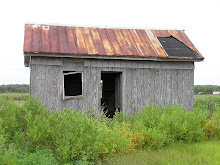Last week 1000 Friends of Maryland launched their newest campaign around land use, a campaign targeted at Maryland's agricultural lands. Their goal is to keep farmers 'farming' and stop the continued sell-off of our rich agricultural lands to subdivision development.
A worthy goal and one vested in their mission statement. Unfortunately their media materials contained some language that I would like to debate.
A section of their publication stated "The growing divide between the agricultural community and the environmental community threatens to further alienate farmers in the public eye. The most volatile area of conflict has been around regulations on runoff from poultry farms, and there are indications that the divide may become more pronounced as the EPA and states struggle with failed bay cleanup goals. 1000 Friends of Maryland can help to bridge the divide among interest groups and communities in all parts of the region..."
Now besides the fact I met with these folks prior to the publication of these materials and I thought we had specifically addressed this language, the fact that they could not tell me how they planned to 'bridge' this gap leaves me disturbed. The reference to environmental laws and regulations as the reason for this great divide brought to mind a column I wrote for the ACT newsletter about a year ago.
And so I have dusted off that old 2008 column and post it now on my blog, because it is still so very relevant!! Read on......
I recently represented Assateague Coastal Trust at a one day retreat of Eastern Shore environmental groups, hosted by the MD League of Conservation Voters. Our goal for the day was to find a way to strengthen our influence in Annapolis by coming together as a unified voice for the Eastern Shore.
Not surprisingly, WATERKEEPER Alliance's effort to bring about more transparency in the CAFO permitting process quickly became a topic of discussion among a few of the groups and at first I was not bothered by direct and indirect comments on the perceived folly of our effort.
I became increasingly alarmed as the other environmental advocates spoke using expressions like "partnership with the farmers" and "protecting the family farms." What alarmed me about this discussion was not that these land conservation advocates needed to work cooperatively with our Maryland farmers, but rather that these environmentalists had been using the very phrasing developed by the poultry industry to fight regulation.
If you've ever heard the term “co-opted” used and didn't know exactly what it meant, this was a perfect example. One way or another, these environmental groups had been duped into speaking the language of the Poultry industry, language that seeks to dissemble and misrepresent the issues that we as environmental groups must pursue. By using this language, these people were unwittingly supporting the very group that fights so hard to prevent the regulation necessary to protect our drinking and recreational waters.
Do you ever get angry when you see someone throw trash on the beach at Assateague? Would you stop someone from dumping waste oil down a storm drain? Do you think it's OK for people to throw garbage from their car windows?
The fact is, the issue that seemed to alarm them the most was that WATERKEEPER wanted the poultry industry, like every other individual and industry in the country, to obey the laws which were written to protect the environment. This is what WATERKEEPER Alliance is asking the state to do by requesting transparency.
This is not new law or new regulation, it is simply saying, "You must tell us what you are doing." For too long now the poultry industry has been exempted from the same requirements that other industries must follow; providing specific information on how they handle runoff and waste.
Then there's the persistent myth of the "family farm." I've been to family farms, I know farmers who run their own operations on their own land, and I know the difference between that type of operation and a factory farm (which are family farms about as much as the Sopranos were a "family").
The poultry industry likes to portray these issues as hurting the family farmer when the real truth is that the poultry industry itself is more of an enemy to the family farm than any current form of state or federal regulation. The advantages they seek for these businesses, things like tax breaks, environmental waivers and zoning exceptions uniformly advantage only the largest corporate operations.
In fact these advantages the corporations seek usually result in an unfair competitive advantage for the large operations, an advantage that all too often results in the loss of family farms as profit falls and costs rise.
So don't tell me that by fighting to make others obey the same laws we all have to obey I'm hurting someone. And don't tell me that by protecting the water you play on, swim in, fish in, and drink I'm somehow doing the devil's work.
Subscribe to:
Post Comments (Atom)


No comments:
Post a Comment